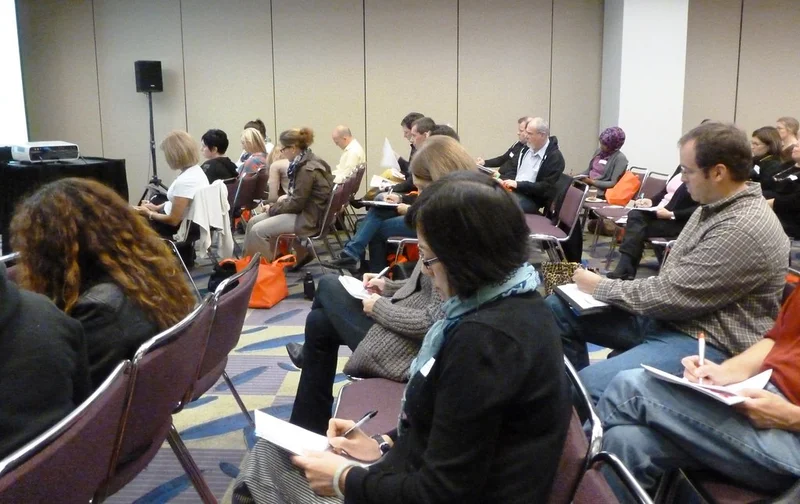The Important Role of School Counselors in our Communities
Professional counselors can and do help communities to become more resilient. Counselors have the knowledge, experience, and training to assist communities in developing programs to address and resolve the negative consequences of events that have occurred in their communities.
Traumatic events and experiences such as community violence, drug and sex trafficking, police shootings, crime, substance and alcohol misuse, and parental abuse and neglect of children have a significant impact on communities. Trauma education is just one facet of counseling that can assist school-going children to grasp the consequences of the communities in which they live. It is vital to expand community outreach through education and training in order to help communities become more trauma-informed and resilient. This can start at school.
School counselors help students achieve their full potential and grow into well-adjusted people who are then able to serve their relevant communities. They organize a complex support system at school, at home, and in the community to enhance pupils’ academic, vocational, social, and emotional development. If you’re interested in becoming a school counselor you can expect to help students achieve their full potential and grow into well-adjusted people who are then able to serve their relevant communities. School counselors organize a complex support system at school, at home, and in the community to enhance pupils’ academic, vocational, social, and emotional development.
School Counselors Can Detect and Diagnose Issues
Children will be affected by early adverse childhood experiences (ACEs) for the rest of their lives. ACEs have been associated with risky behaviors, chronic health issues, poor academic achievement, lower graduation rates, greater time away from employment, and even early death.
ACEs include abuse, neglect, experiencing or witnessing community violence or domestic abuse, exposure to long-term illness, mental health crisis, or death of a caregiver or close family, suicide within the family, growing up in a foster home, or having a loved one who is addicted to drugs or alcohol.
Counselors must recognize a trauma response in children who can often be misdiagnosed or labeled. Because the brain centers that control certain tasks have not matured adequately, traumatized youngsters are unable to regulate emotions, tolerate distress, or learn. The body is under constant stress, and the youngster is in one of three states: fight, flight, or freeze. As a result, the behaviors and emotional issues demonstrated by the child could be stress responses from trauma. School counselors should be the first point of call when assisting children to understand their personal situations and responses.
This highlights the need for early intervention trauma therapy and outreach to provide collaborative support to help communities become more resilient. School counselors can provide this support from the ground roots. They can use this opportunity to become strong advocates for the clients they serve.
There is a growing need for more professional school counselors as more and more people within our communities are displaying behaviors that need understanding and care. Saint Bonaventure University’s online Master of Science in Education School Counseling is an ideal platform to pursue this career if you feel you want to serve your community. The program is tailored to create compassionate and well-adjusted, licensed school counselors. The remarkable achievements of their students can be attributed to a targeted curriculum, internship placement aid, and devoted faculty and adviser support.
Adverse Conditions
Budget cuts in many organizations in the communities where counselors work frequently target mental health services, resulting in service cancellation. When the educational budget needs to be cut, school counselors are frequently the first to go. One or two counselors are left to handle a school of hundreds of pupils. Some schools are without the benefit of having other mental health practitioners on their staff. As a result, due to a lack of professionals to conduct these exams, the ability to screen for trauma is almost non-existent.
Assist in Training other Staff Members
School teachers and employees should be trained to notice when a student is displaying trauma-related behaviors so that they can provide support until the student can be examined by a school counselor or a mental health expert.
Anti-bullying and sexual assault awareness programs can also be developed by school counselors. Many adolescents are traumatized by bullying and sexual assault, which leads to emotional and behavioral difficulties at school. Students who have been traumatized find it difficult to concentrate and learn, and they tend to isolate themselves. Students may engage in a variety of oppositional behaviors or show signs of despair or anxiety.
Connecting Communities
School counselors provide connections between available resources, school/community needs, and service providers. These can include services or programs offered by other educators, law enforcement officers, religious leaders, and others amongst the community’s stakeholders.
School counselors pair mentees with student mentors, social support from an older student, or academic support from after-school student tutoring. In a school-based mentor relationship, many counselors pair at-risk adolescents with a supportive staff member. School counselors are skilled at creating and maintaining positive relationships with kids during the school day as well as linking children to supportive activities and networks outside of school hours. While earning community service hours, high school students can be placed to help younger kids. For students of all ages, such a program is both a college resume booster and a rewarding experience.
School counselors are activists, leaders, facilitators, and strategists who work to bring about systemic change by ensuring that all students have equal access to success in school. They are important stakeholders who care about all students’ progress.
School counselors have a unique opportunity to influence change in their schools, districts, and communities. Direct involvement of school counselors with kids and their families, not only for school activities but also for community events, fosters trust and strengthens bonds, resulting in a strong home-school connection.

